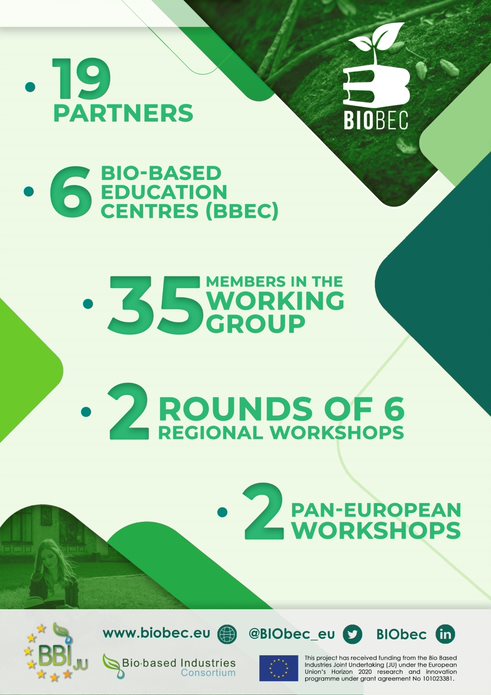The Educational Research Institute and the “PRO CIVIS” Foundation for Education and Social Dialogue will collaborate with over a dozen institutions from 12 European countries to link the needs of the biotechnology industry with the education system. The BIObec project will be implemented for 30 months.
One of BIObec's objectives is to promote education about the bioeconomy and reduce skills gaps in this sector. BIObec will network universities, innovation labs and R&D centres with industry to maximize the opportunities and benefits of the bioeconomy.
BIObec and bioeducation centres
The project will develop an organisational framework for Bio-based Education Centres (BBEC), which could ultimately provide a highly qualified workforce prepared to work in the bioeconomy and stimulate collaboration between the biotechnology industry and the education system. BIObec will develop six pilot schemes for educational centres located in different regions of Europe. The schemes will consist of economic and financial analyses of the centres’ operations, management plans, as well as curricula plans.
The project is funded under the EU's Horizon 2020 research and innovation programme.
Bioeconomy
The bioeconomy includes all industries and services that use biological resources. It is one of the largest and most strategically important sectors in the EU economy, including agriculture, forestry, fisheries, food production, bioenergy production and bio-based products. It is estimated that the bioeconomy has an annual turnover of €2 trillion and employs over 18 million people. Such a rapidly growing industry needs skilled people who can contribute to further growth in this sector.
The bioeconomy, based on renewable segments of a closed loop economy, provides innovative ways to produce and process food, clean water and energy, among other things. This ensures that limited biological resources are not exploited, which not only contributes to new ways of producing goods or energy, but also has a positive impact on the environment (locally and globally). These activities are also associated with the potential to create new, “green” jobs, especially in rural and coastal areas.
